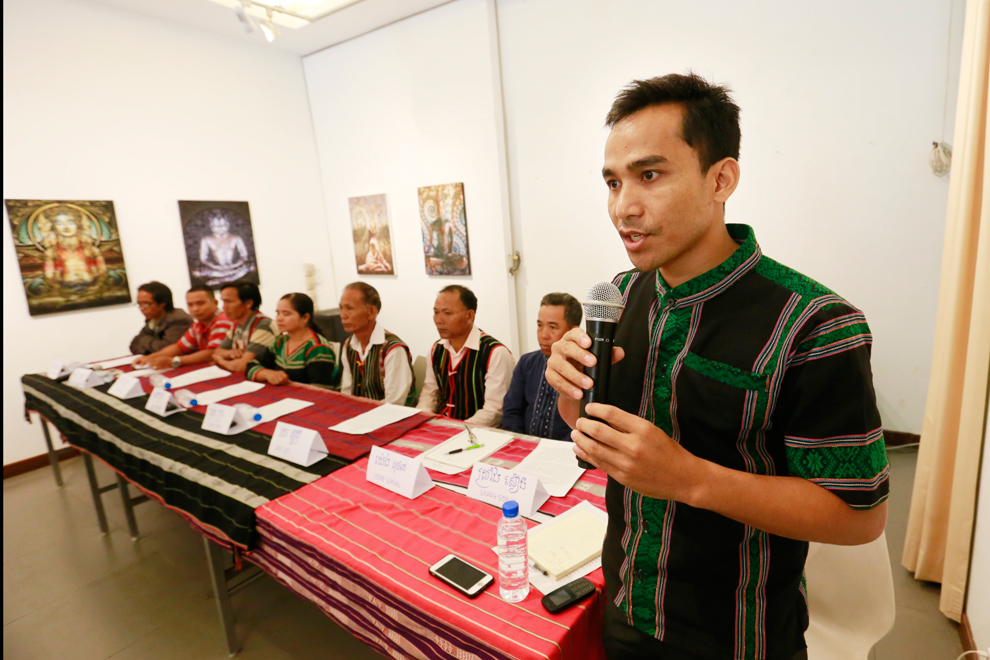
Representatives of the Bunong indigenous communities in Mondulkiri province hold a press conference over their land dispute. Heng Chivoan
Nine representatives of the Bunong indigenous communities in Mondulkiri province who claimed to have fallen victim to a development project by French firm Socfin-KCD appeared for questioning at the Tribunal of Nanterre in France on Tuesday.
The group, from seven villages in Pech Chreada district’s Bou Sra commune, filed a lawsuit at a French court last year to claim damages and demand compensation from Bollore, a firm that funded Socfin-KCD.
They said they were under threat of losing their land, traditions and customs since the arrival of Socfin-KCD, which had received loans from Bollore to operate a rubber plantation in Mondulkiri since 2008.
They claim the existence of the plantation affected the ethnic group’s homes, land and sacred locations.
In January, the French court issued a summons inviting the nine representatives to attend a hearing in Nanterre, a suburb of Paris, in early February.
However, the hearing was postponed to October 1 after the plaintiffs could not obtain visas to attend court.
Bou Sra commune representative Kroeung Tola on Tuesday told The Post that the Bunong indigenous communities sued the company in a French court after they had lost hope of obtaining justice in Cambodia.
“We have tried all means [in seeking a solution] from the local authorities and the court in Cambodia, but there had been no acceptable response.
“I believe the French court will offer us justice as we have enough evidence to present to the judges,” he said.
He said some 800 families, mostly Bunong indigenous members, have been severely affected by the project after Socfin-KCD obtained investment rights to plant rubber trees and other cash crops on 2,368ha on a 70-year contract.
Of the more than 800 families, he added, 640 are directly involved in the land dispute. They turned to the French court after the provincial authorities claimed the dispute had been solved.
The Post could not reach the French companies for comment on Tuesday.
Bollore said after the complaint was lodged last year that it had never known the nine representatives.
Vann Sophat, a project coordinator for the Cambodian Centre for Human Rights (CCHR), said although the hearing was held to decide whether the French court had jurisdiction over the case, he hoped the court would eventually find a compromise to end the dispute.
“If the French court has jurisdiction, it will find justice for the communities by ordering the company to pay them compensation based on French law,” he said.
Mondulkiri provincial court spokesman Meas Bros declined to provide details on Tuesday, saying he needed time to revisit the case.
“I cannot comment on the Bunong indigenous communities’ claims about their ancestor’s land. But the company must have received a permit from the government before starting its project,” he said.
Mondulkiri provincial governor Svay Sam Eang could not be reached for comment on Tuesday.












